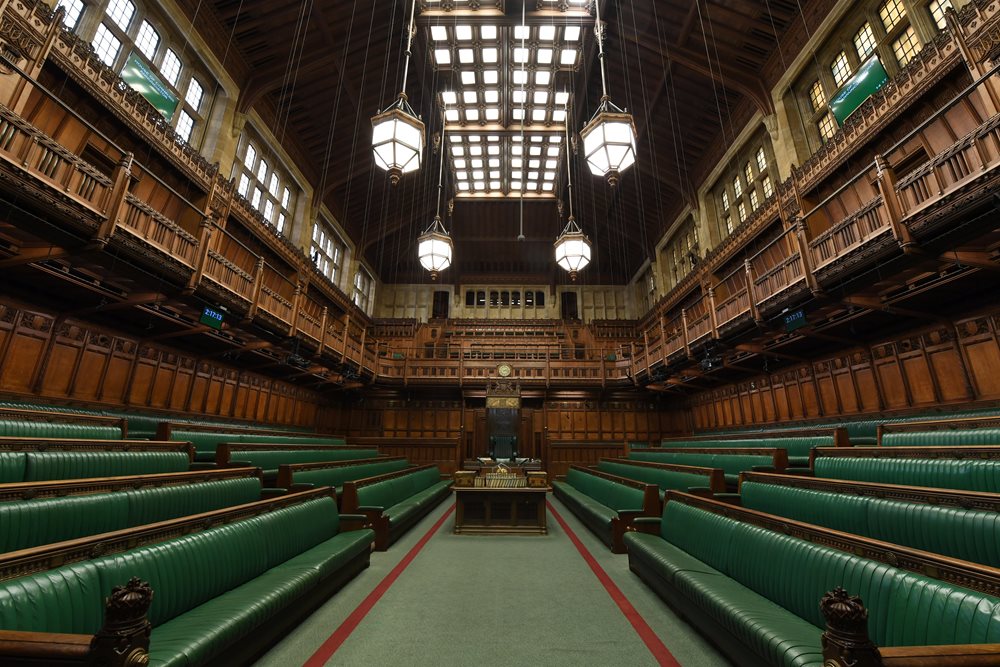Expert contributors to a new assessment have urged government to create a new and focused ministerial post – but sources indicate that such a move is unlikely to be a priority
The government should appoint a dedicated minister across the Cabinet Office and HM Treasury to lead a much-needed digital transformation of government, according to a new report.
Global Counsel, a public affairs advisory firm that provides advice to businesses and government agencies has today published a report urging the government to create a new role with the sole focus of leading the digitisation of Whitehall, along with a number of other recommendations.
One of the lead researchers suggested that a “digital champion” to lead technological reform in government could enable change to be “led from the centre”.
The paper was written with the input of John Gieve, former permanent secretary at the Home Office following a career within the Treasury, and had contributions from multiple government officials, think tanks and business organisations.
Aiming to set out its recommendations to government ahead of the next general election, the report warns that the government might fail to achieve its aims of improving productivity and becoming a world technology leader if it does not prioritise transforming its technological infrastructure.
“Without seizing the opportunities presented by developing technology and sufficient prioritisation, the UK risks falling further behind its international counterparts”, the report stated. “The technology to achieve these ambitions is already readily available, raising the question of what is holding the government back. The government will require a clear strategy fusing realistic short-, medium- and long-term goals to achieve full digital transformation.”
The report highlighted how people are currently “slipping through the cracks” of public services, partly due to gaps in data sharing and technological capacity.
“Government has poor data on the full cost of its existing services, and specifically, a lack of visibility into additional business and people costs of the continued use of unmodernised digital services,” a National Audit Office spokesperson said.
Over the last decade, responsibility for the work of the Cabinet Office-based Government Digital Service – and the wider transformation brief – has been held by a wide variety of ministers. In all cases, it has formed a fairly small segment of a much wider portfolio.
Related content
- Government CTO interview: ‘Technologists have a duty to explain tech – and have not always done a great job’
- Government plans to expand departments’ powers to share personal data to support One Login
- Interview: CDDO chief Lee Devlin on the ‘move from being disruptive to collaborative’
Poppy Woodcock, senior associate at Global Counsel, said that although she does not think employing a minister focused purely on digital reform will be a priority for the government any time soon, she believes it would create the necessary urgency for the task. Currently, this brief is incorporated into the roles of both Cabinet Office minister Jeremy Quin and parliamentary secretary Alex Burghart.
“The first and foremost point is that it would be their only role, it is enough to fill one person’s portfolio,” she told PublicTechnology sister publication PoliticsHome. “Secondly, we’d like to see them sit across the Cabinet Office and the Treasury: ultimately, the recommendations we’ve made are only going to work with full Treasury buy-in. An advantage of it being their only role is they can build relationships with other departments based on digital transformation, which avoids it being traded off with other priorities.”
A Cabinet Office source told PoliticsHome that the government agreed with many of the recommendations in principle, but had to be realistic about the “financial constraints” of introducing or adapting technology in government. Creating a new ministerial role is therefore not seen as a “priority” by government.
Woodcock added that many stakeholders they had spoken to were concerned about the “siloed” nature of government departments that are not willing to work together in terms of sharing data or resources.
“So it’s quite tricky for the whole government to move as one,” she explained. “The government needs to choose two priorities and just push those forward rather than each department doing their own initiatives. In terms of wholesale transformation, it really needs to be led from the centre.”
Proactive voice
The report recommends that the government should introduce a framework for data sharing between different departments and between central and local governments.
The document added that government should create systems to proactively reach out to people who are in need of public services. Woodcock said it would make it more likely that people would take up the benefits that are available.
“I think proactive public services are quite a long way away,” she admitted. “But it’s often the people that need public services the most who are least able to access them, through poor digital literacy or just an inability to access computers. So if the government could practically reach out to them and say ‘this is available to you’, I think we’d see a lot of people taking up the benefits that are available to them.”
The use of artificial intelligence (AI) could also bolster productivity across Whitehall operations. Although various departments are already using AI for a range of purposes, usage is limited when restricted by using legacy IT systems that are decades old and in need of replacement.
The Cabinet Office found in 2019 that government spent £2.3bn of taxpayer money a year on running and maintaining legacy IT systems, out of a £4.7bn total annual IT budget – a challenge recognised by Dame Meg Hillier, a Labour MP and chair of the Public Accounts Committee.
“There are many legacy systems from the 1970s … it is a huge task across government, let alone in areas like the Home Office and the Ministry of Defence, where there are additional challenges that we have looked at separately,” she said.
A government spokesperson said: “We are stepping up our approach to data and digital, and embracing digital transformation and AI. Minister for the Cabinet Office Jeremy Quin recently announced a new digital secondment pilot and cross-government apprenticeship programme, which will attract and retain the best in digital talent. The Central Digital and Data Office is playing a leading role in delivering long-term digital transformation across government and ensuring government is keeping pace with technological change”.
This article originally appeared on PublicTechnology sister publication PoliticsHome




